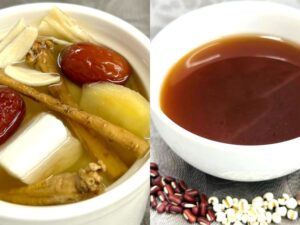
We’ve all been there. That uncomfortable, about-to-burst feeling in the abdomen that follows a buffet binge, finishing up leftovers on your kid’s plate, or more recently, sumptuous lohei dinners with colleagues, friends and family over the Chinese New Year period.
Many people would probably opt for plain porridge to mitigate the bloating, burping, flatulence, nausea and discomfort in the upper abdomen. But for individuals who aren’t keen on yet another bowl of porridge or antacid tablets to help ease indigestion, TCM has been an alternative for some of them.
“Around 50 per cent of all my patients experience at least one indigestion symptom,” said Parkway Shenton’s senior TCM physician Anne Tian. “I do observe a 10 per cent to 20 per cent increase in the total number of patients during and after CNY due to indigestion.”
In TCM, indigestion is perceived as a disruption of the body’s balance of internal energies, said Tian. These energies, including yin and yang (opposing forces linked to various parts of the body), qi (vital energy), blood, jing (essence) and shen (spirit), are constantly interacting with external “pathogens” such as wind, cold, dampness, heat, dryness and fire.
Digestion issues can be seen as acute and chronic, continued Tian. In the acute phase, dampness, heat, cold and wind are usually involved. For instance, eating spicy food puts heat into the body, while drinking cold drinks introduces cold, she said.
In chronic indigestion, which can persist for weeks, months or even years, the symptoms are usually due to a combination of pathogens as well as internal energy stagnation and deficiencies, she said.
I – Word Understanding
Binge – to eat too much of something.
Porridge – a thick, soft food made from oats.
II – Have Your Say
1, What is best to take for indigestion?
2, How can I improve my indigestion fast?
991 Dealing with indigestion after over-eating? Try these 4 easy-to-make TCM recipes for relief


